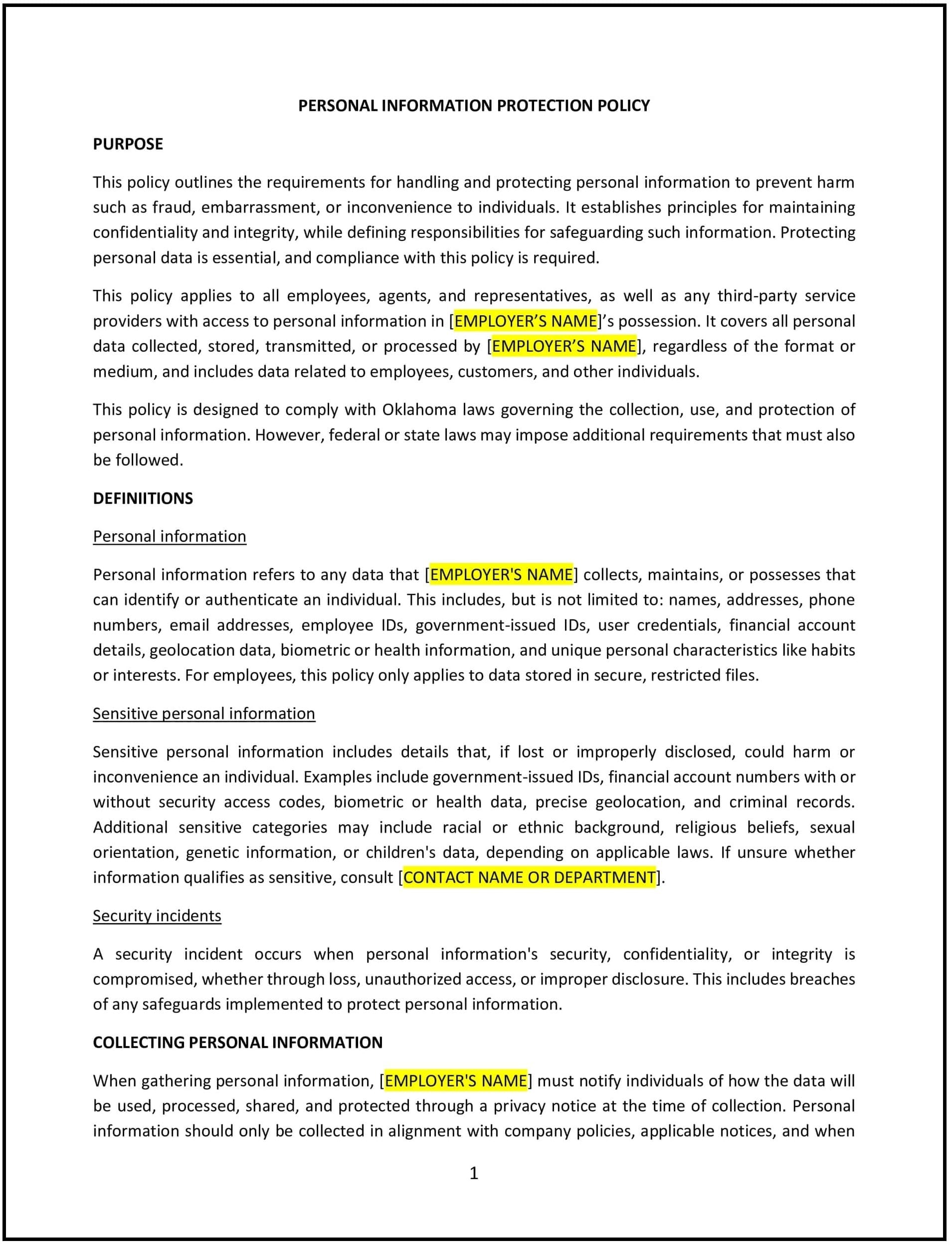Personal information protection policy (Oklahoma): Free template
Got contracts to review? While you're here for policies, let Cobrief make contract review effortless—start your free review now.

Customize this template for free
Personal information protection policy (Oklahoma)
This personal information protection policy is designed to help Oklahoma businesses safeguard sensitive employee and customer data. It outlines procedures for collecting, storing, and using personal information while strengthening compliance with privacy laws and regulations.
By adopting this policy, businesses can protect against data breaches, build trust, and demonstrate a commitment to privacy and security.
How to use this personal information protection policy (Oklahoma)
- Define personal information: Clearly explain what constitutes personal information, such as names, addresses, Social Security numbers, and financial data.
- Establish data collection procedures: Specify how personal information is collected, including the purpose and legal basis for collection.
- Outline storage and access: Describe how personal information is stored securely and who has access to it, such as authorized personnel only.
- Address data usage: Explain how personal information will be used, ensuring it is only for legitimate business purposes.
- Include data retention: Specify how long personal information will be retained and the procedures for secure disposal.
- Train employees: Educate staff on handling personal information responsibly and recognizing potential security threats.
- Review and update: Assess the policy annually to ensure it aligns with evolving privacy laws and best practices.
Benefits of using this personal information protection policy (Oklahoma)
This policy offers several advantages for Oklahoma businesses:
- Protects sensitive data: Reduces the risk of data breaches and unauthorized access to personal information.
- Enhances trust: Demonstrates a commitment to protecting employee and customer privacy.
- Promotes compliance: Aligns with state and federal privacy laws, such as the Oklahoma Security Breach Notification Act, and the General Data Protection Regulation (GDPR), where applicable.
- Mitigates risks: Reduces the likelihood of legal disputes, fines, or reputational damage due to data mishandling.
- Builds confidence: Shows employees and customers that their personal information is handled responsibly and securely.
Tips for using this personal information protection policy (Oklahoma)
- Communicate clearly: Ensure all employees understand the policy and their responsibilities in handling personal information.
- Provide training: Educate employees on data protection best practices and recognizing potential security threats.
- Monitor compliance: Regularly review data handling practices to ensure adherence to the policy and legal requirements.
- Encourage reporting: Foster a culture where employees feel comfortable reporting potential data breaches or security concerns.
- Update regularly: Review the policy annually to ensure it remains effective and aligned with current privacy laws and best practices.